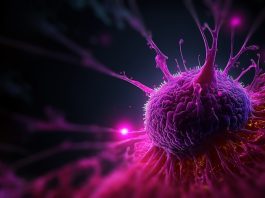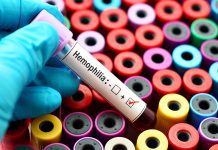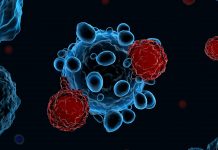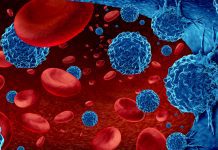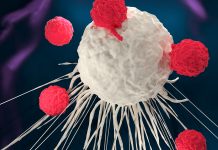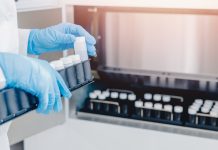Researchers suggest changes to haemophilia treatment
Findings from two University Hospital Bonn studies could lead to significant changes in haemophilia treatment.
Haemophilia A, which almost exclusively affects males, is the most...
Common heartburn drugs could accelerate TB treatment
Researchers have found that over-the-counter heartburn medications could shorten tuberculosis (TB) treatment.
TB typically takes months to treat, using a range of drugs. As a...
New CAR T-cell therapy offers new hope to ovarian cancer patients
CAR T-cell therapy has shown to be effective in mice with ovarian cancer, offering new hope to patients who require effective treatment.
CAR T-cell therapy...
Researchers find a new drug candidate for fatty liver disease
A study from Karolinska Institutet has identified a potential antibody drug candidate for the treatment of non-alcoholic fatty liver disease.
Currently, there is no drug...
Are antidepressants for chronic pain effective?
New research has revealed that antidepressants may be effective in treating certain chronic pain conditions, but there is a lack of evidence on their...
An antibiotic used to treat eye infections could cure Mycoplasma genitalium
An oral antibiotic tablet used to treat common eye infections could be used as a treatment for the sexually transmitted disease Mycoplasma genitalium, according...
An existing drug could provide a potent treatment for acute leukaemia
Researchers from the National University of Singapore (NUS) have revisited an existing drug that they believe could treat acute leukaemia.
The drug is called PIK-75...
Improving migraine relief medication
Researchers from Malmö University have found a way to improve migraine relief medication by creating a shortcut from the mucous membrane in the mouth...
More than 400 people will benefit from CAR-T therapy NICE approval
Over 400 people with an aggressive form of lymphoma are set to benefit from the first CAR-T therapy recommended for routine use in the...
Scientists explain emotional ‘blunting’ caused by SSRIs
The University of Cambridge scientists have discovered why selective serotonin reuptake inhibitors (SSRIs) cause emotional ‘blunting’.
In a new study, scientists have found out why...
Chemotherapy before surgery reduces the risk of colon cancer returning
Cancer Research UK finds that giving colon cancer patients chemotherapy before surgery cuts their risk of the disease returning.
In a new Cancer Research UK-funded...
Oxford University leading research on programmable nucleic acid drugs
A consortium led by the University of Oxford researchers has been awarded £8m of funding to unlock the potential of programmable nucleic acid drugs.
Programmable...
Reimagining drug delivery and diagnostics
BioNxt Solutions’ Hugh Rogers explains how the company is driving forward innovation in drug delivery methods and diagnostics technology.
Canadian-headquartered life sciences company, BioNxt Solutions,...
Children on medication for depression has risen by almost 60% in the UK
Prescription of medication for depression in children is up by nearly 60%, according to a new study from the University of Aberdeen.
The same study...
Less than four in 100 men eligible to be sperm donors
International research of over 11,700 men in Denmark and the US finds that less than four in 100 men are accepted as sperm donors.
A...
Vitamin D supplements can reduce the risk of melanoma
Fewer cases of melanoma were found in regular users of vitamin D supplements than in non-users, according to a new study.
People who regularly take...
A new cure for dystonia is under development
A research team in Korea have made significant steps towards finding a cure for dystonia, offering hope to thousands of musicians.
Musicians’ dystonia affects 1-3%...
Perseverant bacteria are weakening antibiotic treatment
Bacterial perseverance is a new phenomenon that could help explain how bacteria are able to adapt to survive antibiotic treatment.
A team of researchers from...
UCL team gain access to the most powerful supercomputer for drug discovery
A UCL-led team of researchers are using the world’s first exascale supercomputer to identify a shortlist of potential new drugs for diseases.
The supercomputer called...
Can ketamine help treat severe alcohol disorder?
A new trial from the University of Exeter will investigate whether ketamine-assisted therapy could help treat alcohol disorder.
The £2.4 million trial will be delivered...




